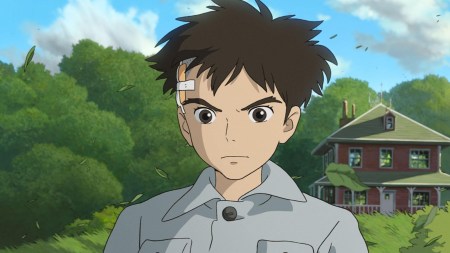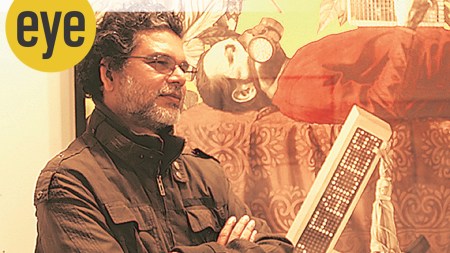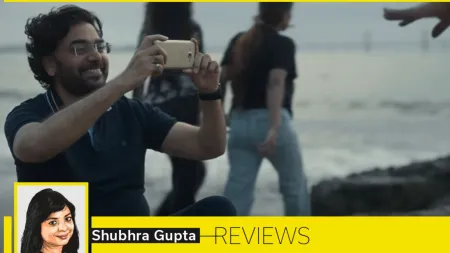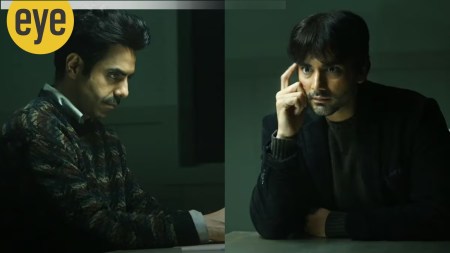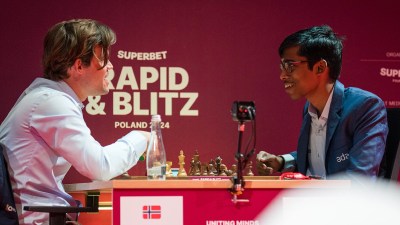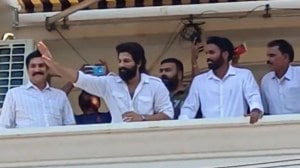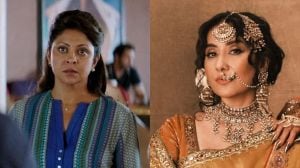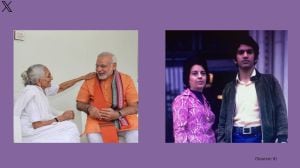- India
- International
FIFA World Cup 2018: Oscar Tabarez for the best coach?
Oscar Tabarez has helped Uruguay, a nation of 3.4 million people, punch consistently above its weight at global football’s biggest stage.
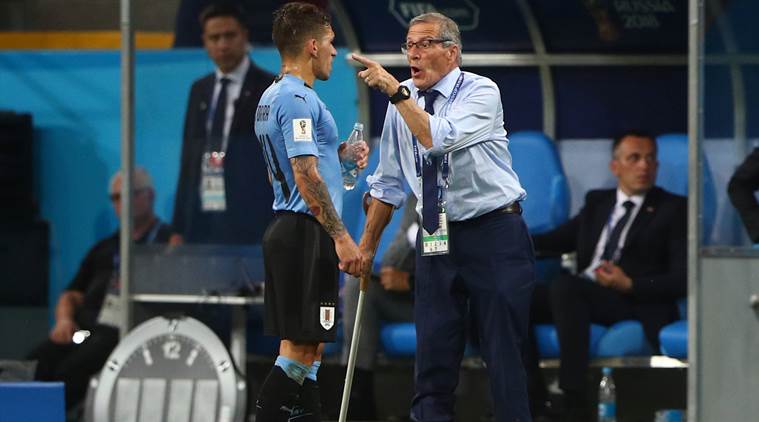 The 71-year-old Tabarez needs a crutch to walk these days, but El Maestro’s enthusiasm for coaching remains undimmed. (Reuters Photo)
The 71-year-old Tabarez needs a crutch to walk these days, but El Maestro’s enthusiasm for coaching remains undimmed. (Reuters Photo)
There is a grainy picture posted on former Argentina striker Gabriel Batistuta’s Twitter handle: The footballer is in a fit of rage, but he is restrained from what looks like a brawl by a scholarly looking man, blood dripping from his face. The caption reads: “Thank you for saving my life and career, Maestro.”
The Maestro, or El Maestro as he is more famously know as, is Oscar Tabarez, and the was picture shot during one of a riotous Copa Libertaredos match in Chile, in 1991, between local club Colo-Colo and Boca Juniors, the Argentina club Tabarez was coaching. The first leg, which Boca had narrowly won (1-0), was ill-tempered. So, understandably, the mood in Santiago was vengeful, and the flare-up began when the goalkeeper, after complaining several times that the photographers’ flash was disturbing him, flung a football into the cordon.
ALSO READ | France’s pace takes on Uruguay’s defensive brakes
As if they needed an instigation, the crowd barged in and attacked several players including Batistuta, who later recollected the incident in a television interview: “He (Tabarez) wasn’t afraid that they would break his face. He was with us in the middle, shouting us not to retaliate and dragging us to the dressing room. I think, while trying to save us, he even threw a few punches at some of them, and when he got into the bus, his white shirt had blood stains, possibly mine.”
Though he couldn’t resuscitate Boca Juniors and his spell ended in three years, he shaped several careers, including Batistuta’s. The prolific striker was languishing as a withdrawn winger. But Tabarez’s intuitive mind whispered to him that he had the requisites of a forward, the instinct and positioning sense than the uncalibrated speed required of a winger. He installed him at the centre of the frontline, and Batistuta’s career took off, which explains the latter half of the tweet.

[bc_video video_id=”5805667869001” account_id=”5757251836001″ player_id=”ByU0hpZif”]
Nearly two decades later, he similarly resurrected another floundering career. Tabarez first heard of Luis Suarez in a deprecatory tone, so much so that he felt sympathetic towards him. Suarez missed goals, lost possession, was prone to theatrics and was even hostile to coaches and support staff. Some of them even called him, “borderline”. But Tabarez saw something in him and asked those that criticised him: “Did you not see what he just tried to do?’ I saw that, OK, he lost the ball a lot, but he always got in the face of his rival. He would always try to get past a defender one-on-one; to get in behind the opposition and get to goal.”
He dug into Suarez’s psyche, configured that his petulance stemmed from his background — he was from a broken family living in one of the roughest townships in Montevideo. “I realised he needed guidance, a warm arm around him. I also noted that he was obstinate and stubborn and needed to dealt sensitively. So I thought of a metaphor and told him, ‘Every career is like a ladder, you always get stuck one step up from the last opportunity.’ The trust was immediately won,” he recollected in a documentary on the striker.
ALSO READ | Slow-starting France seek to harness scary potential
The entire generation of La Celeste would swear by Tabarez’s influence in their life. Diego Godin affectionately calls him the ‘godfather’. The support staff calls him ‘Che’, for his fascination with the Argentine revolutionary. Che’s motto, “one must toughen oneself without ever losing tenderness” is nailed on a plaque on the wall in his house, and he has named his daughter Tania, after Che’s last comrade, one the revolutionary apparently loved. It was his love of Che that made El Maestro immensely popular at Boca Juniors.
***
Sometime last year, during the World Cup qualifiers, a journalist asked him: “Coach, why do you take so much effort when you’re so ill?” A sliver of rage flashed across his Tabarez’s face, before he camouflaged it with a gregarious smile and retorted: “Why, you don’t want me to be the first coach to win the World Cup with crutches?” Tabarez doesn’t banter around, but when he does, the sarcasm scythes through the skin and the bones.
The journalist was referring to Tabarez’s chronic neuropathy, a reason he uses crutches to walk, and sometimes even a mobility scooter. But that hasn’t impaired his mental faculties. “Not one bit,” according to him — not least his strategising skills. Reflected Diego Godin in an interview to Uruguay TV: ”In fact, he’s become sharper and more determined to show that he can be a great coach. He’s a living embodiment what he has taught us, and still tells us, what we call the Garra Charrúa brand of football.”
Garra Charrúa, a word borrowed from the indigenous Indian diction, is a Uruguayan expression that stands for tenacity (referring to the bowers). Often, the coach has been blamed for the players, especially Suarez, whose last two World Cups ended with red cards, taking the philosophy to the extreme and biting Giorgio Chiellini in 2014. But Tabarez, while defending Suarez in public, admonished him in the dressing room, and even after the World Cup in Brazil was over, used to keep talking to him. “He scolded me for my stupidity, but at the same time didn’t blame me or condemn. He told me I was very important for the Uruguayan and world football, but I have to change. I apologised to him several times after that,” Suarez wrote in his autobiography.
ALSO READ | Former villain Luis Suarez is now Uruguay’s elder statesman
The spirit of Garra Charraua and philosophy of Che can be seen in Tabarez’s football as well. “We are not the most artistic teams, nor are we blessed with huge streams of potential like our neighbours (Argentina and Brazil). We have just one-tenth of their population. So we, understandably, have to be fight it out to win matches. It can at times be ugly, but like Che has said, we would look to win without losing our tenderness.”
The philosophy of his football is the philosophy of his life too. It’s written over the crutches and the mobility chair.
***
Tabarez’s first stint as the Uruguayan coach, in 1988, came with an introduction to communist political writer Eduardo Galeano. Victor Hugo and Fyodor Dostoevsky echoed in the corners of the dressing room. A former primary school teacher himself, he installed libraries in training centres, made reading world classics compulsory, so much so that some of his detractors whispered: “Good lord, our coach was a teacher, not a butcher.” He took a lead from Argentine visionary Jose Pekerman and persuaded the sports council to set up youth academies in various parts of the country, besides ensuring that he travelling all over the country scouting talents from under-four age group.
He went about radicalising the football culture in Uruguay, though his efforts were stalled after Uruguay crashed out in the second round of the 1992 World Cup.
“The Teacher fails World Cup test,” screamed a national daily. But, paradoxically, it took Tabarez himself to resurrect Uruguay after 14 years of global wandering. He began exactly where he had left off, with a reemphasised focus on youth development and instilling socio-cultural awareness in footballers. “Apart from strategies, he made us understand that we have the highest literacy level in the continent, that we have highest life-expectancy rate in the continent. Before that we haven’t heard of any European writers of even those in other American countries. He has made us intellectual footballers,” Edinson Cavani spoke in a television interview.
Tabarez explained his raison d’etre, what in Uruguay is simply known as ‘Tabarez method’: “I’’m a football man, but I understand that there are more important things than football. But there are things that football can help. Sport can contribute greatly to health and education, which are the two measures we use of development, not just of wealth. Football should help marginalised people into society, to contribute to equal opportunity, for government policies to encourage its use as an uplifting activity, to combat idleness.”
At once an intellectual, El Maestro and godfather.
May 12: Latest News
- 01
- 02
- 03
- 04
- 05



